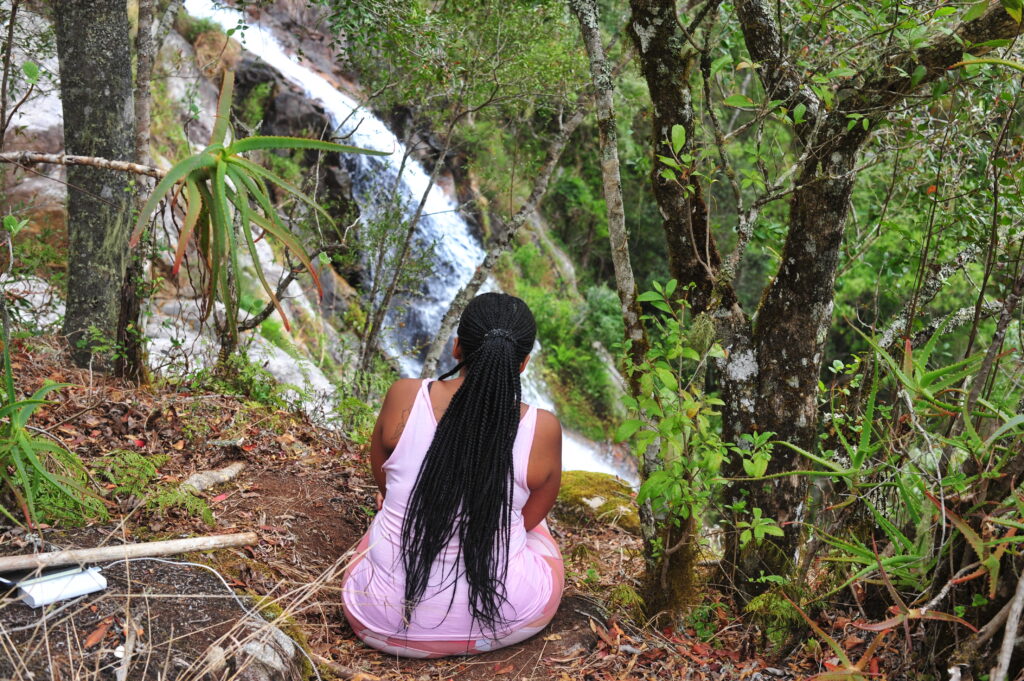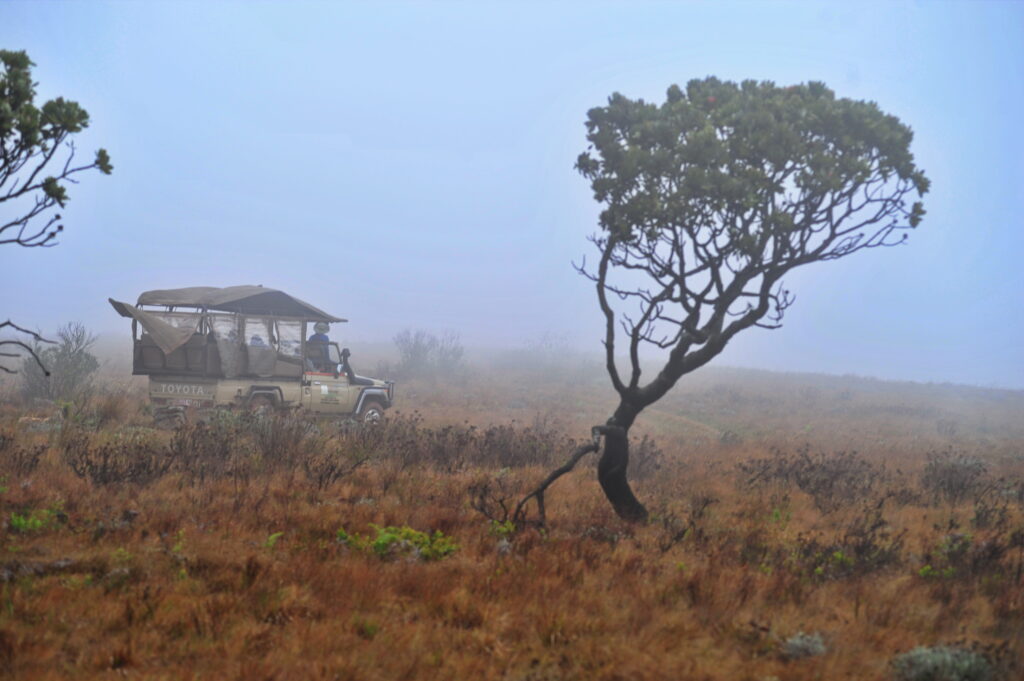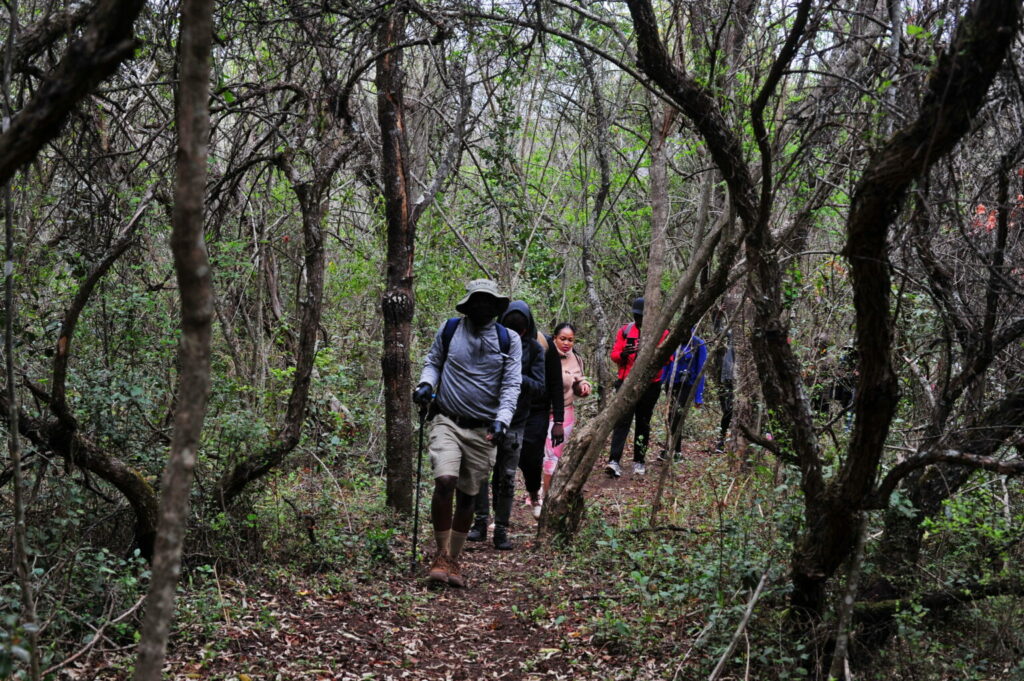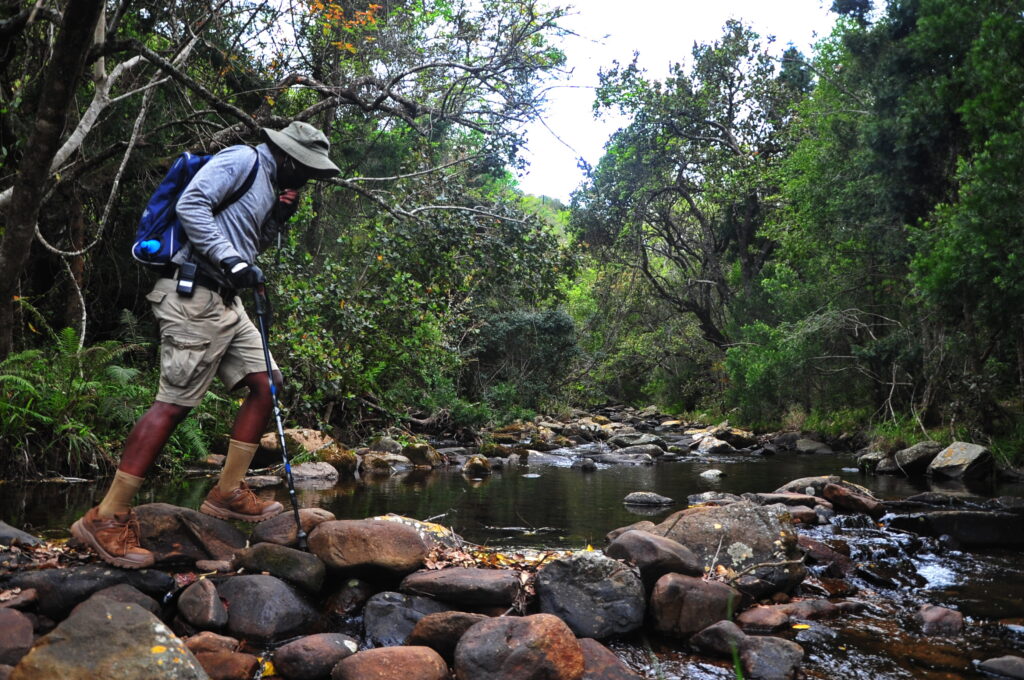Limpopo farmers will benefit from mega land reform project that will help to create more jobs, to counter the recession caused by Covid-19. (Photo: Mujahid Safodien / AFP)
Limpopo has not been spared the devastation caused by the outbreak of the Covid-19 pandemic on the global economy, but efforts are now underway to revive the ailing business sector.
The World Bank noted that the baseline forecast envisions a 5.2% contraction in global GDP in 2020.
The global body also forecast that the pandemic will result in the deepest global recession in decades, despite the extraordinary efforts of governments to counter the downturn with fiscal and monetary policy support.
“Over the longer horizon, the deep recessions triggered by the pandemic are expected to leave lasting scars through lower investment, an erosion of human capital through lost work and schooling, and fragmentation of global trade and supply linkages.”
Limpopo MEC for Economic Development, Environment and Tourism Thabo Mokone said through an inter-governmental approach, the provincial government is working with all district municipalities to identify mega agro-processing projects that require revitalisation.
At the centre of the province’s recovery plan is a vigorous industrialisation plan supported by strong agriculture and tourism sectors with a strong 41R and Infrastructure.
“The Tshakhuma pack-house in the Vhembe District will be revitalised through partnerships with the private sector. Plans are afoot to pursue options to operate a livestock abattoir in the Waterberg District. These interventions will open up opportunities to small-scale farmers to access markets, and create jobs within the sector,” Mokone said.
Agriculture is one of the mainstays of the provincial economy. Mokone said seven feasibility studies and bankable business plans have been completed on seven mega land reform projects in the Vhembe and Waterberg districts.
The Quarterly Labour Force Survey by Statistics SA revealed that Limpopo lost 236 000 jobs and that all sectors of the economy suffered job losses with the exception of the agriculture sector, in which 16 000 jobs were created.
Mokone said there are major projects aimed at attracting investment into the sector.
“The Lebowakgomo Chicken Abattoir is in its full implementation, which will, among other things, result in revitalisation of several broiler production projects. This will create 500 direct jobs within the value chain. We are engaging the private sector to escalate agro-processing and expose mega projects such as Zebediela Citrus to the export market,” he said.
Mokone said the provincial recovery plan is geared towards the achievement of projects that include the Musina Makhado Special Economic Zone (SEZ), which prioritises local entry of entrepreneurs and manufacturers.
“This SEZ is aimed at beneficiating our mineral resources of chrome, coal, iron ore, manganese and vanadium locally. Engineering designs for the northern site of this SEZ are complete and initial bulk infrastructure construction is expected to start in the first quarter of 2020/21,” Mokone said.
He said investments earmarked for the northern site of the SEZ are in the logistics, agro-processing and light industries sectors.
Mokone highlighted that the province’s second proposed SEZ, the Fetakgomo-Tubatse Special Economic Zone, is aimed at beneficiating platinum group metals, thereby expanding the PGM value chain in the country.
“We are in advanced engagements with Glencore to partner in the Mining Input Supplier Park as part of rolling out industrial parks in partnership with the Department of Trade, Industry and Competition (DTIC),” he said.
Mokone said the Fetakgomo-Tubatse SEZ has a pipeline of projects to the tune of R25-billion and is projected to create 8 000 jobs.
“The province is eagerly considering putting in resources to start bulk infrastructure in the next financial year. The province is doing all it can to ensure that a credible application for designation of this SEZ is realised,” he said.
Mokone said the southern site is earmarked for the metallurgical complex, with a committed investment of R150-billion, projected to create over 21 000 jobs.
“The long-awaited EIA has been completed and is undergoing the public participation process for final submission.”
He said the rolling out of industrial parks in the Capricorn District, Seshego, Nkowankowa in Mopani district and Thohouyandou in the Vhembe district, in partnership with the DTIC, is projected to attract around R75-million worth of investment and will create around 2600 jobs over time.
Mokone said this also includes a skills academy, which will be the centre of artisanal, vocational and entrepreneurial skills. He added that training centres are currently being accredited in Seshego, Lwamondo, Nkowankowa and Giyani.
In outlining the impact of the Covid-19 pandemic on the global economy, the World Bank noted: “The personal, social and economic impact of Covid-19 is unlike anything experienced by the world in the past 75 years.”
Statistics SA undertook a snap survey on businesses in various sectors to gauge how they were impacted by the pandemic.
The entity noted that the majority of responding businesses (85.4%) reported turnover below the normal range. It went on to report that 46.4% of business indicated temporary closure or paused trading activity, 28.% indicated that their workforce has decreased working hours and 19.6% reported laying off of staff in the short term.
In his address outlining government’s economic recovery in reaction to the coronavirus outbreak, President Cyril Ramaphosa said the plan’s objectives included job creation through aggressive infrastructure investment and mass employment programmes.
Ramaphosa said government also sought to reindustrialise the economy, focusing on growing small businesses; accelerating economic reforms to unlock investment and growth, and improving the capability of the state.
“No country has been spared. No economy has been unaffected. This is also the case on our own continent,” Ramaphosa said.
Mokone said in line with national government’s economic recovery plan, the provincial government has developed the Limpopo Socio-Economy Recovery Plan to protect livelihoods and jobs.
“This recovery plan has been widely consulted with all industries and business formations in the province, as well as [with] organised labour,” he said.
Mokone said the provincial government has set aside R3.5-billion to mitigate against the impact of Covid-19 on the economy and the population.
“The larger proportion of the provincial government funding is allocated to the social cluster, which is health, education and social development, and R500-million has been set aside to support economic recovery in the short term,” he said.
The funding is set to be disbursed as follows:
• Agriculture: Production inputs for farmers – R 57 500-million
• SMME and Cooperative Support: Limpopo SMME and Cooperative Support with the National Empowerment Fund (NEF) – R10-million
• Waste management: Limpopo Waste Management Relief Package – R 7 800-million
• Industrialisation: Special Economic Zone – R 4 700-million
• Enterprise development: Limpopo SMME Loan Book relief package – R 10 000-million
• Tourism: Limpopo Tourism Relief Package – R 10 000-million
• Road infrastructure: Committed Roads Projects – R 400 000-million.
Mokone added that a feasibility study for the establishment of a science and technology park in Polokwane has been completed, with a projected investment of R4.7-billion. It is set to create a projected 9 000 jobs.
“Lease agreements have been signed, the master plan for the Science Park has been completed and a Record of Decision (ROD) for the EIA issued. We are currently mobilising funds through a PPP model to implement the project.” – Mukurukuru Media
Limpopo tourism dusts off Covid-19 ahead of peak season
The tourism sector was not spared from the devastating disruptions brought about by the Covid-19 pandemic. These disruptions resulted in countless casualties, which included job losses due to the closure of many businesses.
However, strategies such as the Covid-19 Tourism Recovery Plan published in August articulate bold plans to restore the sector to its former glory.
 The Wolkberg Nature Reserve in the Drakensberg is the source of many mountain streams (above). Due to its height, the Wolkberg creates cold winters for Limpopo and, frequently, mist (below).
The Wolkberg Nature Reserve in the Drakensberg is the source of many mountain streams (above). Due to its height, the Wolkberg creates cold winters for Limpopo and, frequently, mist (below).

“Based on a review of recent crisis recovery processes, the tourism sector is likely to rebound from this sudden market shock, primarily because of various forms of government interventions,” say Dimitri Ioannides and Szilvia Gyimóthy in their academic paper titled: The Covid-19 crisis as an opportunity for escaping the unsustainable global tourism path.
Limpopo province has refined national government recovery strategies and localised them to achieve maximum impact, in order to save livelihoods.
Limpopo’s MEC for Economic Development, Environment and Tourism Thabo Mokone said the provincial government has set aside R3.6-billion to mitigate against the impact of Covid-19 on the economy and the population.
“R10-million of these funds has been allocated to the Limpopo Tourism Relief Package,” said Mokone.
In total, R500-million was set aside to augment the national relief funds.
“We want to express our appreciation for the partnership that we have had with the national department in rolling out the national relief funds in Limpopo,” Mokone said.
According to the department, SMMEs in Limpopo are encouraged to take advantage of the national relief programmes. The province further developed and implemented a sector risk mitigation strategy across the main sectors of the Limpopo economy that will guide the resumption of economic activities, in particular mining and tourism.
The Limpopo Socio-Economy Recovery Plan is informed by the need to protect livelihoods and jobs.
 Trails have been carved out for hiking in the scenic Wolkberg Nature Reserve. Tourism was particularly hard hit by the Covid-19 pandemic and the Limpopo government has put extensive measures in place to help with its revival.
Trails have been carved out for hiking in the scenic Wolkberg Nature Reserve. Tourism was particularly hard hit by the Covid-19 pandemic and the Limpopo government has put extensive measures in place to help with its revival.

Furthermore, the province has ambitious plans to retain its spot in the domestic tourism industry. According to the provincial department, tourism associations in the province “have been mobilised to initiate and use new marketing initiatives to re-ignite travel and accommodation in compliance with Covid-19 protocols”.
Among its plans to revive tourism and increase accessibility to the province by visitors, Limpopo plans the construction of a high-speed rail track from Johannesburg to Beitbridge, through a public-private partnership model.
Mokone acknowledged the shortcomings currently affecting the province’s road network.
“Roads are under huge strain given the geo-strategic location, wherein we are connecting the Republic to the rest of the continent,” Mokone said.
The high-speed train is seen as a way to reduce congestion on the roads and connect people of the SADC region, thus creating economic spinoffs.
Mokone recently joined a party of hikers at the 22 000-hectare Wolkberg Nature Reserve as part of the efforts to promote the tourism sector.
The reserve is located near the picturesque village of Haenertsburg, in the Drakensberg mountain range in Limpopo.
The United Nations World Tourism Organization (UNWTO) said last year the sector represented 30% of the world’s exports of services and up to 45% of the total export of services in developing countries.
The organisation said tourism, along with the transport sector, was one of the sectors most affected by the Covid-19 crisis, and that tourist arrivals plunged 93% in June when compared to 2019.
This year has been designated as the Year of Tourism and Rural Development.
“Our sector gives them [people] the chance to make a living. To earn not just a wage, but also dignity and equality. Tourism jobs also empower people and provide a chance to have a stake in their own societies — often for the first time,” UNWTO secretary general Zurab Pololikashvili said in a recent speech marking World Tourism Day (September 28).
Mokone said young guides such as Fannie Mamabolo were in charge of not only showing guests around, but they had carved out a trail on their own. He wants to see more such transformation.
“Remember that most blacks in South Africa were not part of tourism. We never used to tour, because every time when we came to this kind of area, we were coming here to serve other people,” Mokone said, before the hike commenced.
“We must do away with that; schools must come here we must educate our children that this is our culture, our heritage,” he said.
Under a cover of grey clouds that promised some rain later, we took off in single file behind Mamabolo. Two other guides positioned themselves in the centre and at the back of the line.
Mamabolo mentioned the reserve is also home to one of the “Gods of Africa”, the black mamba. He has seen specimens about 6m long right here. Now if you know about the black mamba’s reputation as the fastest and deadliest reptile on the continent, your mind goes into overdrive at the mention of it.
But spending time in the heart of mother nature teaches one some valuable lessons — animals, no matter how dangerous, generally avoid humans and speed away to safety at the slightest scent or sound of our presence.
The Wolkberg is also home to small antelope, dassies, monkeys, baboon and very rich bird life. It is also said to be the source of at least seven rivers.
During the winter season it boasts many waterfalls that tumble down from high up in the mountains. They seem to kiss the sky, reaching up to heights of over 2 000m above sea level.
In the rainy season, our guides remarked, there are easily over 400 such waterfalls making music in the reserve, adding to the soothing harmony of mother nature.
The vegetation is largely thick forest with beautiful ferns laid out neatly as if by the hand of a skilled landscape artist alongside river banks and grasslands bedecking the mountaintops. Natural pools provide ample opportunities for swimming in crystal clear waters.
Hopefully in the coming months and years more people will tread these paths as life slowly gets back to normal after Covid-19. – Mukurukuru Media